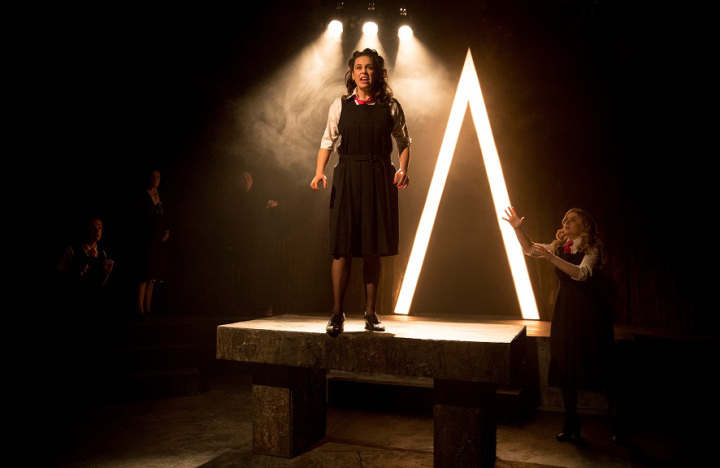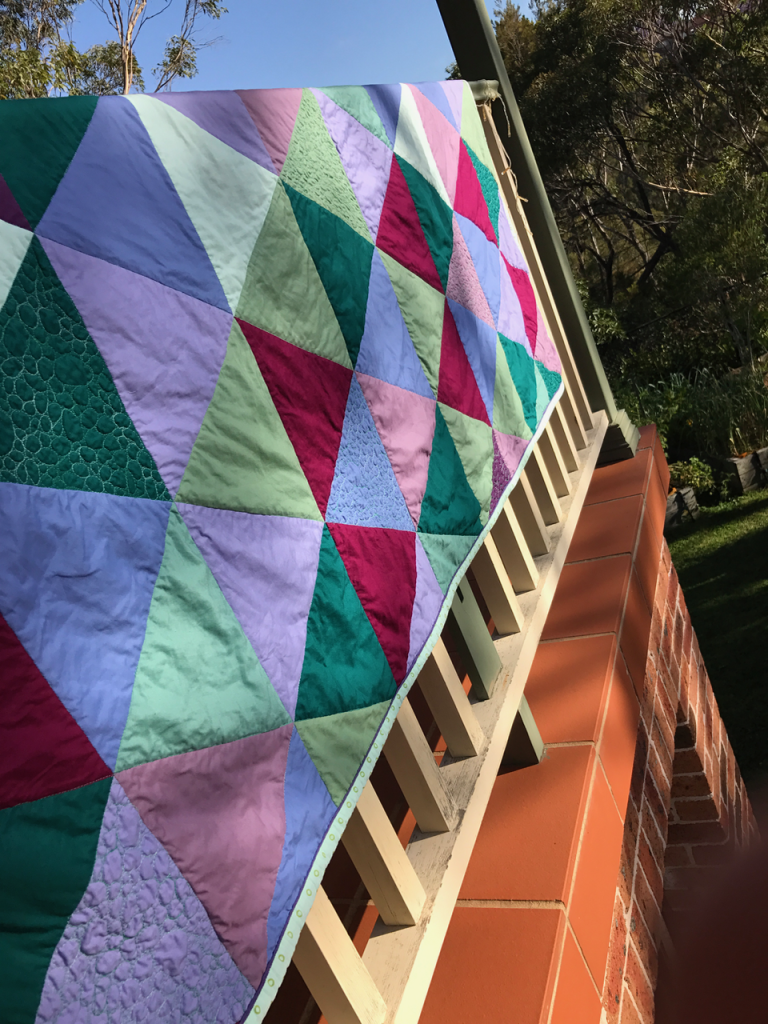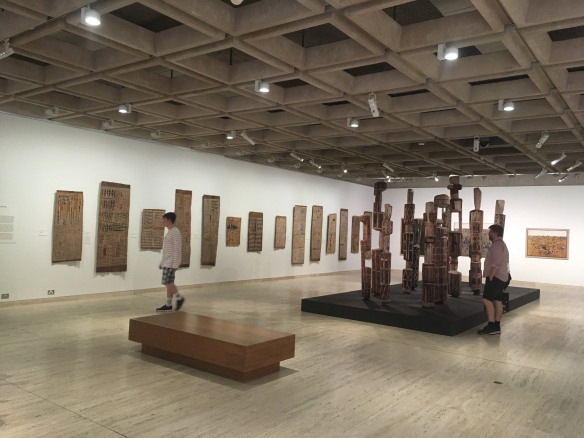This review was originally published on AussieTheatre.com.au
 Photo: Bob Seary
Photo: Bob Seary
A need for strong female representation arrives at the forefront of today’s entertainment context; to pursue well-rounded characters, and not reduce them to plot tools (the Bechdel Test is an example of how character tests are frequently applied to films/TV shows). It is a real testament to Dorothy Hewett’s 1972 play, The Chapel Perilous – with its sexually-liberal female protagonist – that it does not feel aged at all, remaining heartedly relevant in New Theatre’s polished production in 2017.
Sally Banner (Julia Christensen) is confronting but bitingly witty from the moment she sets foot on stage. She is a defiant schoolgirl at a religious Christian school, who isn’t afraid to talk back to her superiors. Transitioning between hilarious interactions with her parents, schoolteachers and classmates, to her tragic downfall following her failed relationships, the trajectory of the play works through the peaks and troughs of Sally’s school to adult life, as she navigates between her desires and her struggles against the context of World War II.
Sally begins as self-indulgent, but Carissa Liccairdello’s tender direction never suggests that this borders on the pretentious, and both Hewett’s writing and Christensen’s performance give sincerity to the deepest of her flaws. As moments of Sally’s sharp sarcasm wanes into crumbled vulnerability, Christensen gives full weight to her difficulties – relinquishing a ferocious and passionate portrayal that breathes vivacity into Hewett’s headstrong protagonist.
While its protagonist soars, Hewitt’s play struggles with its intermittence as a musical. Working more seamlessly with the first act as a provider of context, it becomes more noticeably a quasi-hyper reality that feels out of place with the continuity of the play. In one scene, all ensemble members burst into the Hockey Pockey Shake (a play on the Hippie movement?), but lighting (Martin Kinnane) nor technical direction signifies any reason for shift – and it is rendered absurd as a result. A questionable surrealist-reality also appears with the repetition of a court trial where Sally is the accused; she is put on the stand for her outrageous sexual behaviour, her disobedience – but is this a dream? Or is it a dramatization of the guilt she feels at defying pressure of her peers and authorities? The unclear barriers between real-life and this imagination don’t knit well together, befitting as an unwelcome interruption than an effective storytelling device.
The comment on male behaviour becomes more powerful as a tool to explore the harshness of realities against Sally’s freedom; particularly when Sally’s romantic interests (Michael, Thomas, David, Saul) accumulate into one – all played by the versatile Tom Matthews. Shifting convincingly between the initially charming Michael to the naïve Thomas, the quadrupling of characters is piercingly horrifying as their ultimately manipulative treatment of Sally accrues towards them labelling her a “bitch”, demeaning a character we’ve seen grow before our eyes, into a cheap label. These figures become increasingly frustrating as Sally’s character is also sacrificed; her fiery character is less recognisable in the second Act as her choices become more indecisive, and if not more unbelievable. She is desperate to be loved, but the repetition of pursuit, break-up and forgiveness, begins to mark a predictable cycle in the play that this production cannot entirely fix.
As the lights dim and the last scene plays, Sally walks through the glowing light of the chapel for the first time (the set by Martin Kinnane is simple but multifunctional). New Theatre’s production is scaringly pessimistic – questions are left unanswered about her place in the world alone. The position of the woman, especially of those who cannot conform, is equally as ambiguous.
 Photo: Bob Seary
Photo: Bob Seary
The Chapel Perilous is showing until 27 May 2017 at New Theatre. You can find out more about the show, including how to book tickets, here.
Advertisements Share this:




